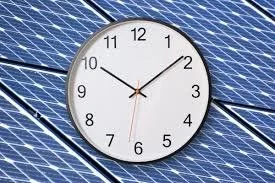Your Local Florida
Home Improvement Broker
Your One-Stop Solution for Solar, Roofing, and HVAC
At Solar Near Me, we’re your trusted partners for energy-saving and home improvement. We connect you with top local experts for solar, roofing, and HVAC services.
☀️ Solar: We find trusted installers to help you save money and raise your home’s value.
🏠 Roofing: Need a new roof or repairs? We link you to skilled roofers who deliver lasting results.
❄️ HVAC: Want to upgrade or fix your heating and cooling? We match you with reliable pros for comfort and efficiency.
With us, you get expert service without the stress. We do the research and coordination, so you don’t have to. Reach out today to start!
Family-owned in Florida.
Let us be your solar guide!
Florida Solar Incentives!
-
Net metering allows solar owners to earn credits for excess energy that they send to the grid that offsets their grid usage when their panels aren’t generating power.
Florida’s current net metering rules were enacted in 2008 by the Florida Public Service Commission (PSC). These rules provide a fairly good version of net metering, but there are some important things to know.
First, the state’s net metering law only applies to Investor Owned Utilities (IOUs). Customers of these four companies are covered:
Florida Power & Light (FPL)
Duke Energy Florida
Tampa Electric Company (TECO)
Florida Public Utilities Corporation
(Information provided by Solarreviews.com)
-
Florida introduced a sales tax exemption for solar energy and combined heat and power (CHP) systems in July 1997. The incentive was originally slated to only last five years, but the state converted the sales tax exemption into a permanent benefit. The sales tax exemption applies to the following:
The retail rate of solar panels, solar heaters and combined heat and power systems
It is available for residential, commercial and agricultural uses
Floridians don’t pay sales tax when purchasing a solar energy system, regardless of the size of your system. However, you must use solar equipment certified by the Florida Solar Energy Center to qualify for the exemption. The solar sales tax exemption does not involve a complex process — you are simply not charged the 6% sales tax when purchasing an eligible solar panel system in Florida.
(Information provided by marketwatch.com)
This exemption is available to individuals and companies.
Eligible systems must convert sunlight into energy for use as a power source for another system.
Applies to equipment and any component currently certified by Florida Solar Energy Center as a qualifying solar energy component: solar collectors, pumps and controls, photovoltaic power conditioning equipment, energy storage units, and accessories integral to a qualifying system.
Exemption is available by certifying to the seller that the items purchased or leased qualify for the exemption.
References: Section 212.08(7)(hh), F.S., and Tax Information Publication #05A01-05
(Information provided by floridarevenue.com)
-
Home improvements can increase the assessed value of your property, which normally means you have to pay higher property taxes. However, Florida has the Property Tax Abatement for Renewable Energy Property, so you are not taxed for any increase in home value after installing solar panels. This exemption works as follows:
Your property taxes remain unchanged if your home becomes more valuable due to a solar panel installation.
This incentive was introduced in July 2013 and will remain available through December 2037.
(Information provided by marketwatch.com)
-
Florida homeowners can access clean, affordable energy with no up-front investment. Lease-to-Own solar is the MOST popular solar plan in Florida and is still available. Contact us today for details about L.T.O and your custom design!
All information above is available on the internet. Please consult IRS code or with a tax professional for additional information.


















